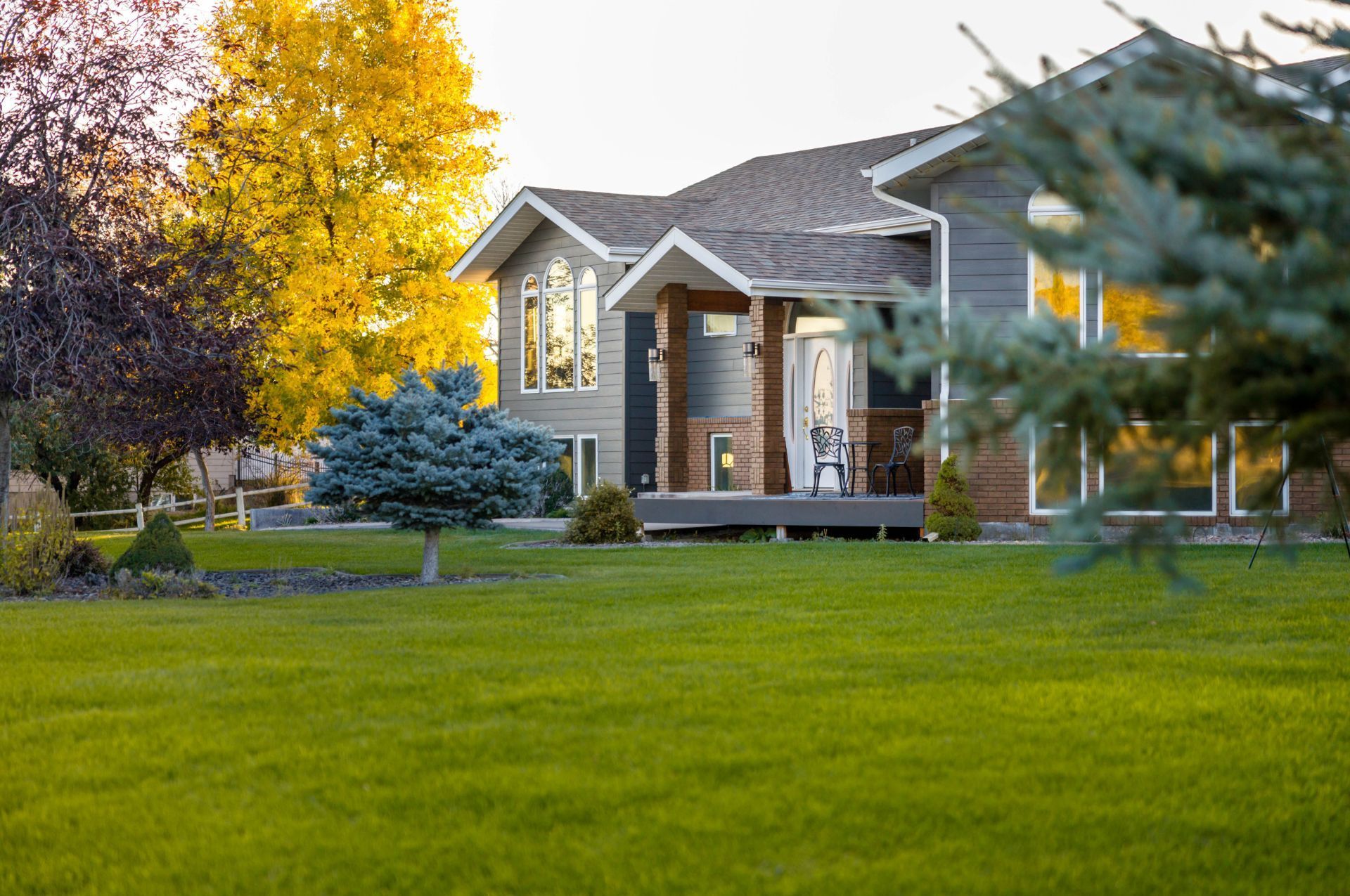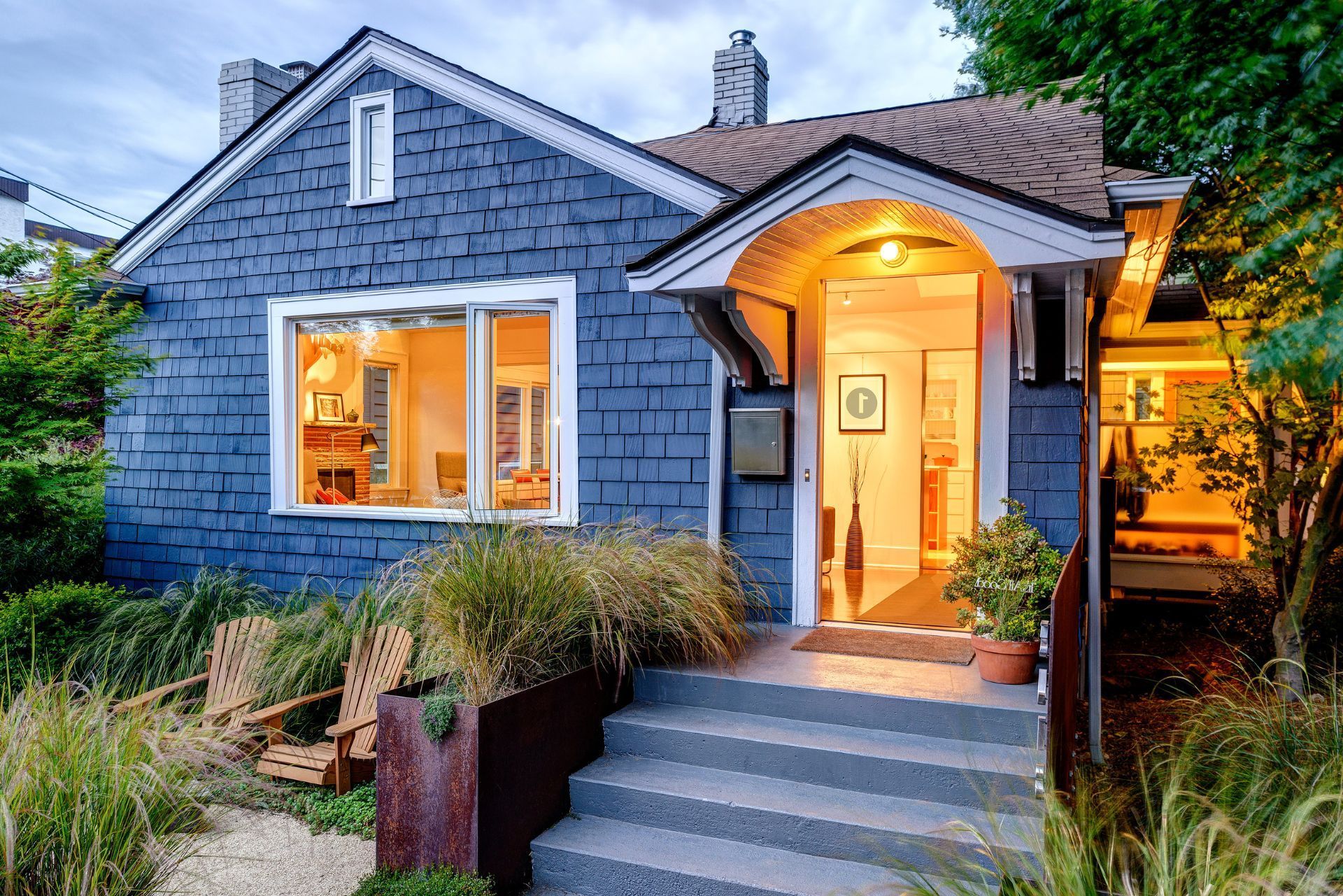
Top 3 Recommended Policies
Home insurance is an essential aspect of homeownership, providing financial protection against unforeseen events. For residents of Burlington, Connecticut, understanding the nuances of home insurance can be vital in safeguarding their investment. This article delves into the various facets of home insurance specific to Burlington, offering insights on coverage options, local considerations, and tips for choosing the right policy.
Understanding Home Insurance Basic
Home insurance, also known as homeowner's insurance, is a type of property insurance that covers private residences. It typically includes coverage for the structure of the home, personal belongings, liability protection, and additional living expenses in case of a covered loss. Understanding the basic components of home insurance is crucial for homeowners in Burlington, especially given the region's unique climate and potential risks such as heavy snowfall and seasonal storms. By being informed, homeowners can make better decisions regarding their coverage and ensure they are adequately protected against unforeseen events.
Key Components of Home Insurance
Home insurance policies generally consist of several key components:
- Dwelling Coverage: This protects the physical structure of the home against risks such as fire, theft, and vandalism. It’s essential to ensure that the coverage amount reflects the current rebuilding costs, which can fluctuate over time due to changes in material prices and labor costs.
- Personal Property Coverage: This covers personal belongings, including furniture, electronics, and clothing, in the event of theft or damage. Homeowners should take inventory of their possessions and consider additional riders for high-value items like jewelry or art, which may not be fully covered under standard policies.
- Liability Protection: This component protects homeowners from legal claims arising from injuries or damages that occur on their property. Given the increasing number of lawsuits, having adequate liability coverage is vital to safeguard against potential financial ruin.
- Additional Living Expenses: If a home becomes uninhabitable due to a covered event, this coverage helps pay for temporary housing and related costs. This can be particularly beneficial during extensive repairs, allowing homeowners to maintain their quality of life while their home is being restored.
Types of Home Insurance Policies
There are several types of home insurance policies available, each catering to different needs:
- HO-1: Basic form that covers a limited number of perils. This is often the most affordable option but may leave homeowners vulnerable to various risks not included in the policy.
- HO-2: Broad form that covers more perils than HO-1, making it a more comprehensive choice for those seeking additional protection without breaking the bank.
- HO-3: The most common type, covering all perils except those specifically excluded. This policy is favored by many homeowners because of its extensive coverage, making it suitable for a wide range of properties.
- HO-4: Renter's insurance, designed for tenants. This policy is crucial for renters who want to protect their personal belongings and avoid financial loss in case of theft or damage.
- HO-5: Comprehensive form that provides the most extensive coverage for both the dwelling and personal property. This policy is ideal for homeowners with valuable assets or those living in areas prone to natural disasters.
In addition to these standard policies, homeowners may also want to consider endorsements or riders that can enhance their coverage. For instance, flood insurance is a critical addition for those living in flood-prone areas, as standard home insurance policies typically do not cover flood damage. Similarly, earthquake insurance can be a wise investment in regions where seismic activity is a concern. By tailoring their home insurance to fit their specific needs, homeowners can ensure they are fully protected against a variety of risks, providing peace of mind in an unpredictable world.

Factors Influencing Home Insurance Rates in Burlington
Home insurance rates can vary significantly based on several factors. Understanding these can help homeowners in Burlington make informed decisions when selecting a policy.
Location and Geography
Burlington's geographical location plays a crucial role in determining home insurance rates. Homes situated in areas prone to natural disasters, such as floods or hurricanes, may face higher premiums. Additionally, proximity to fire stations and emergency services can positively impact rates. For instance, neighborhoods that are within a certain distance from fire hydrants or have a lower response time from local fire departments may qualify for discounts. Conversely, properties located in flood zones or near bodies of water could see their rates increase significantly due to the higher risk of water damage.
Home Characteristics
The age, size, and condition of a home also influence insurance costs. Newer homes often come with modern safety features that can lower premiums, while older homes may require additional coverage due to outdated systems. Furthermore, the materials used in construction can affect vulnerability to certain risks, impacting the overall insurance rate. For example, homes built with fire-resistant materials may benefit from lower premiums, while those with wood siding might be considered at greater risk for fire damage. Additionally, the presence of security systems, such as alarms or surveillance cameras, can further reduce rates, as they decrease the likelihood of theft or vandalism.
Claims History
A homeowner's claims history can significantly influence their insurance rates. If a homeowner has a record of frequent claims, insurers may view them as a higher risk, resulting in increased premiums. Conversely, a clean claims history can lead to discounts and lower rates. It's also worth noting that some insurers offer incentives for policyholders who take proactive measures to prevent losses, such as installing storm shutters or maintaining a well-kept property. Homeowners should be aware that even minor claims can impact their rates, so it’s often advisable to weigh the cost of repairs against the potential increase in premiums before filing a claim.
Local Considerations for Burlington Homeowners
Burlington, CT, has unique characteristics that can affect home insurance policies. Understanding these local considerations can help homeowners make better choices regarding their coverage.
Natural Disaster Risks
Connecticut experiences a variety of weather conditions, including heavy snowfall, thunderstorms, and occasional flooding. Homeowners in Burlington should consider policies that offer adequate protection against these potential risks. Flood insurance, for example, is often not included in standard home insurance policies and may need to be purchased separately. Additionally, the risk of ice dams during the winter months can lead to significant water damage, making it crucial for homeowners to evaluate their coverage options for such weather-related incidents. Investing in comprehensive coverage can provide peace of mind, knowing that they are protected against the unpredictable nature of New England weather.
Local Building Codes
Burlington has specific building codes that homeowners must adhere to when making renovations or repairs. Understanding these codes is essential, as failure to comply may affect insurance claims. Insurers often require that repairs are made according to local standards, which can influence the claims process. Moreover, staying informed about any updates or changes to these codes can help homeowners avoid costly mistakes. Engaging with local contractors who are familiar with Burlington's regulations can ensure that any work done on the property meets the necessary requirements, ultimately safeguarding the homeowner’s investment and insurance coverage.
Community Resources
Burlington offers various community resources that can assist homeowners in understanding their insurance needs. Local government websites often provide information on disaster preparedness and safety measures, which can be beneficial for homeowners looking to minimize risks and potentially lower their insurance premiums. Furthermore, Burlington hosts community workshops and informational sessions focused on home safety and insurance literacy, allowing residents to connect with experts and fellow homeowners. These resources not only empower homeowners to make informed decisions but also foster a sense of community, as residents share experiences and strategies for navigating the complexities of homeownership and insurance in Burlington.
How to Choose the Right Home Insurance Policy
Choosing the right home insurance policy can be daunting, but with the right approach, homeowners can find a policy that meets their needs and budget.
Assess Your Coverage Needs
Before selecting a policy, it’s essential to assess personal coverage needs. Consider the value of the home, personal belongings, and any potential liabilities. Homeowners should also evaluate whether they need additional coverage for specific risks, such as natural disasters or valuable items. For instance, if you live in an area prone to flooding or earthquakes, it may be wise to look into specialized policies that cover these events, as standard home insurance often excludes them. Additionally, consider the replacement cost of your belongings; if you have high-value items like jewelry or art, you might want to schedule these separately to ensure they are fully covered.
Shop Around for Quotes
Obtaining quotes from multiple insurance providers is a crucial step in finding the best policy. Different insurers may offer varying rates and coverage options, so it’s beneficial to compare them. Homeowners should also inquire about discounts for bundling policies or maintaining a claims-free history. Furthermore, it’s important to consider the financial stability and customer service reputation of the insurance companies you are evaluating. Online reviews and ratings can provide insight into how well an insurer handles claims and customer inquiries, which can be invaluable when you need assistance the most.
Understand Policy Terms
Reading and understanding the terms of a policy is vital. Homeowners should pay close attention to exclusions, limits, and deductibles. Knowing what is covered and what is not can prevent unpleasant surprises when filing a claim. Additionally, familiarize yourself with the claims process outlined in the policy. Understanding how to file a claim, the documentation required, and the timeline for processing can save you time and stress in the event of a loss. It may also be beneficial to ask your insurance agent to clarify any terms or conditions that seem ambiguous, ensuring that you have a clear understanding of your obligations and rights under the policy.

Common Home Insurance Myths
There are several myths surrounding home insurance that can lead to misconceptions. Debunking these myths can help homeowners make more informed decisions.
Myth: Home Insurance Covers Everything
Many homeowners believe that their insurance policy covers all types of damage. However, most standard policies have exclusions, such as damage from floods or earthquakes. It’s crucial for homeowners to understand what their policy covers and consider additional coverage if necessary. For instance, flood insurance is often sold separately and is essential for those living in flood-prone areas. Homeowners should also be aware that certain high-value items, like jewelry or art, may require additional endorsements to be fully covered. Understanding these nuances can prevent unpleasant surprises when filing a claim.
Myth: You Only Need Insurance When You Buy a Home
Some individuals think that home insurance is only required at the time of purchase. In reality, homeowners should maintain insurance throughout their ownership to protect their investment against unforeseen events. Life changes, such as renovations or new additions to the family, can impact the value of a home and the coverage needed. Additionally, many mortgage lenders require homeowners to keep their insurance active, as it protects both the homeowner and the lender’s investment. Regularly reviewing and updating your policy ensures that you are adequately covered and can help you avoid gaps in protection.
Myth: All Insurance Companies Are the Same
Not all insurance providers offer the same coverage options, rates, or customer service. Homeowners should research and compare different companies to find one that aligns with their needs and preferences. Factors such as the company’s financial stability, claims process, and customer reviews can significantly influence the overall experience. Moreover, some insurers may offer discounts for bundling policies or for having security features in the home, which can lead to substantial savings. Engaging with an independent insurance agent can also provide valuable insights and help homeowners navigate the complexities of different policies and coverage options.
Tips for Lowering Home Insurance Premiums
Homeowners in Burlington can take several steps to lower their home insurance premiums without sacrificing coverage.
Increase Your Deductible
One effective way to lower premiums is by increasing the deductible. A higher deductible means that homeowners will pay more out-of-pocket in the event of a claim, but it can significantly reduce monthly premiums. It's essential to evaluate your financial situation to ensure that you can comfortably afford the higher deductible if an unexpected event occurs. For instance, if you live in an area prone to natural disasters, consider how much risk you are willing to take on versus the savings you may gain from a lower premium.
Improve Home Security
Investing in home security systems, smoke detectors, and other safety measures can lead to discounts on insurance premiums. Insurers often reward homeowners who take proactive steps to protect their property. Additionally, features such as deadbolt locks, security cameras, and motion-sensor lights not only enhance safety but can also provide peace of mind. Some insurance companies may even offer incentives for installing smart home technology, which allows homeowners to monitor their property remotely and receive alerts about potential issues.
Bundle Policies
Many insurance companies offer discounts for bundling home and
auto insurance policies. Homeowners should inquire about these discounts to save money on their overall insurance costs. Bundling can simplify the management of insurance policies and often leads to better customer service, as having a single point of contact can streamline communication. Furthermore, some insurers may provide additional benefits for bundled policies, such as accident forgiveness or enhanced coverage options, making it a win-win situation for homeowners looking to save while maintaining comprehensive protection.
Filing a Home Insurance Claim in Burlington
In the unfortunate event of a loss, knowing how to file a home insurance claim is essential for homeowners in Burlington.
Document the Damage
Before filing a claim, homeowners should thoroughly document the damage. Taking photos and making a detailed list of affected items can help support the claim process and ensure that all losses are accounted for.
Contact Your Insurance Provider
Once the damage is documented, homeowners should contact their insurance provider to report the claim. It’s essential to provide accurate information and be prepared to answer questions regarding the incident.
Follow Up on the Claim
After filing a claim, homeowners should follow up with their insurance company to check on the status. Staying in communication can help expedite the process and ensure that the claim is handled efficiently.
Conclusion
Home insurance is a critical component of homeownership in Burlington, CT. By understanding the basics, local considerations, and how to choose the right policy, homeowners can protect their investments effectively. With the right approach, navigating the complexities of home insurance can lead to peace of mind and financial security.
Contact Us
Phone
Locations
Connecticut Location
703 Hebron Ave., 3rd Floor, Glastonbury, CT 06033
North Carolina Location
436 East 36th St., Charlotte, NC 28205


